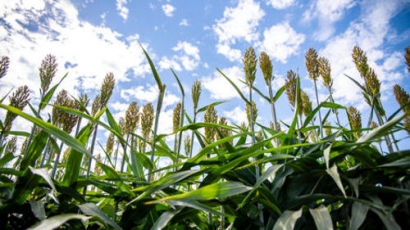
The funding awards are supported by DOE’s Advanced Research Projects Agency-Energy. These investments in advancements in clean energy technology, will help America achieve the Biden-Harris administration’s goal of 100% clean energy economy and net-zero emissions by 2050.
“Biofuel is a powerful tool in the clean energy toolkit that has immense potential to power our ships and airlines with zero carbon emissions,” said Secretary of Energy Jennifer M. Granholm. “DOE is investing in research to reduce emissions and maximize the availability of efficient biofuel as we strive to reach President Biden’s net-zero carbon goals.”
Biofuel, including ethanol, biodiesel and other products derived from organic material (biomass), is almost exclusively produced via a conversion process called fermentation. These fermentation processes create carbon as a byproduct, with some processes wasting more than 1/3 of this carbon as CO2 emissions. As a result, there is a critical need to create new pathways for biofuel conversion that reduces carbon waste, prevents the loss of CO2 emissions, and in turn, maximizes the amount of renewable fuel a conversion process yields.
The 15 teams receiving awards through ARPA-E’s “Energy and Carbon Optimized Synthesis for the Bioeconomy” (ECOSynBio) program will work on the following methods to optimize biofuel manufacturing:
“California is home to many of the world’s leading research institutions, and their innovations will be critical to building a clean energy economy,” said Sen. Alex Padilla, D-Calif. “As we work to mitigate the impacts of climate change, we need to keep investing in the next generation of clean fuel technology. I’m proud to see California’s continued leadership in the development of these clean energy technologies and applaud the Biden administration for their ongoing commitment to combat climate change.”
Rep. Joyce Beatty, D-Ohio, said, “As Representative of Ohio’s Third Congressional District, I will continue to work with the White House to address the impact of climate change—and I am confident that the groundbreaking research being done by Central Ohio scientists will go a long way in pushing that important work forward.”
“The University of Washington is building on its distinguished record of being a local, national, and global leader on developing the scientific innovations necessary to aggressively take on climate change,” said Rep. Pramila Jayapal, D-Wash. “I am grateful that the Biden-Harris administration is prioritizing bold climate action while immediately centering environmental justice and investing in our institutions of higher education so they can lead the way in protecting our planet for generations to come. I look forward to continuing to work with the new administration to create green jobs, achieve a renewable energy future, and guarantee clean air, safe drinking water, and public lands for all.”
The awardees are:
Read more about the winning projects HERE.

